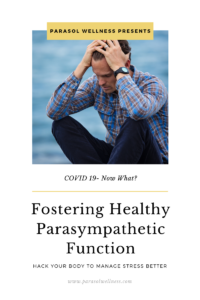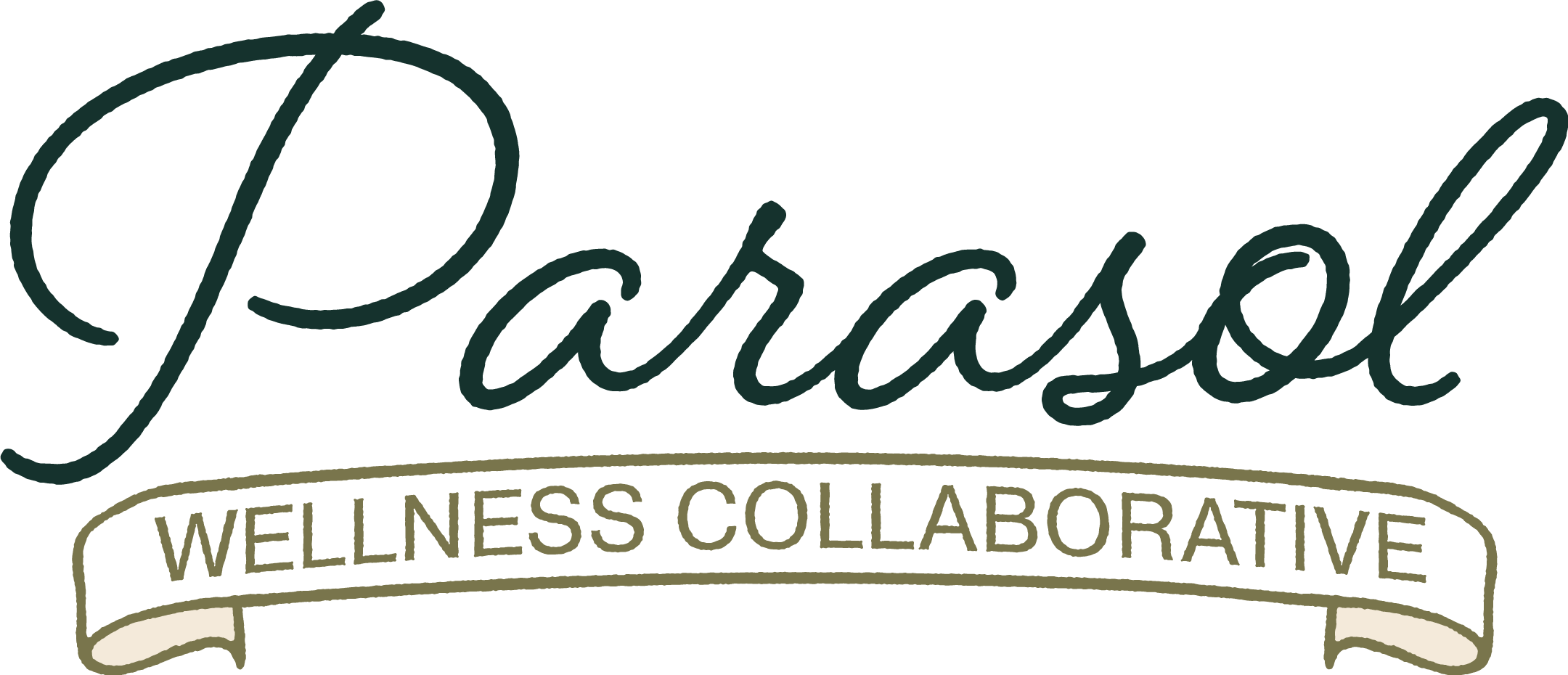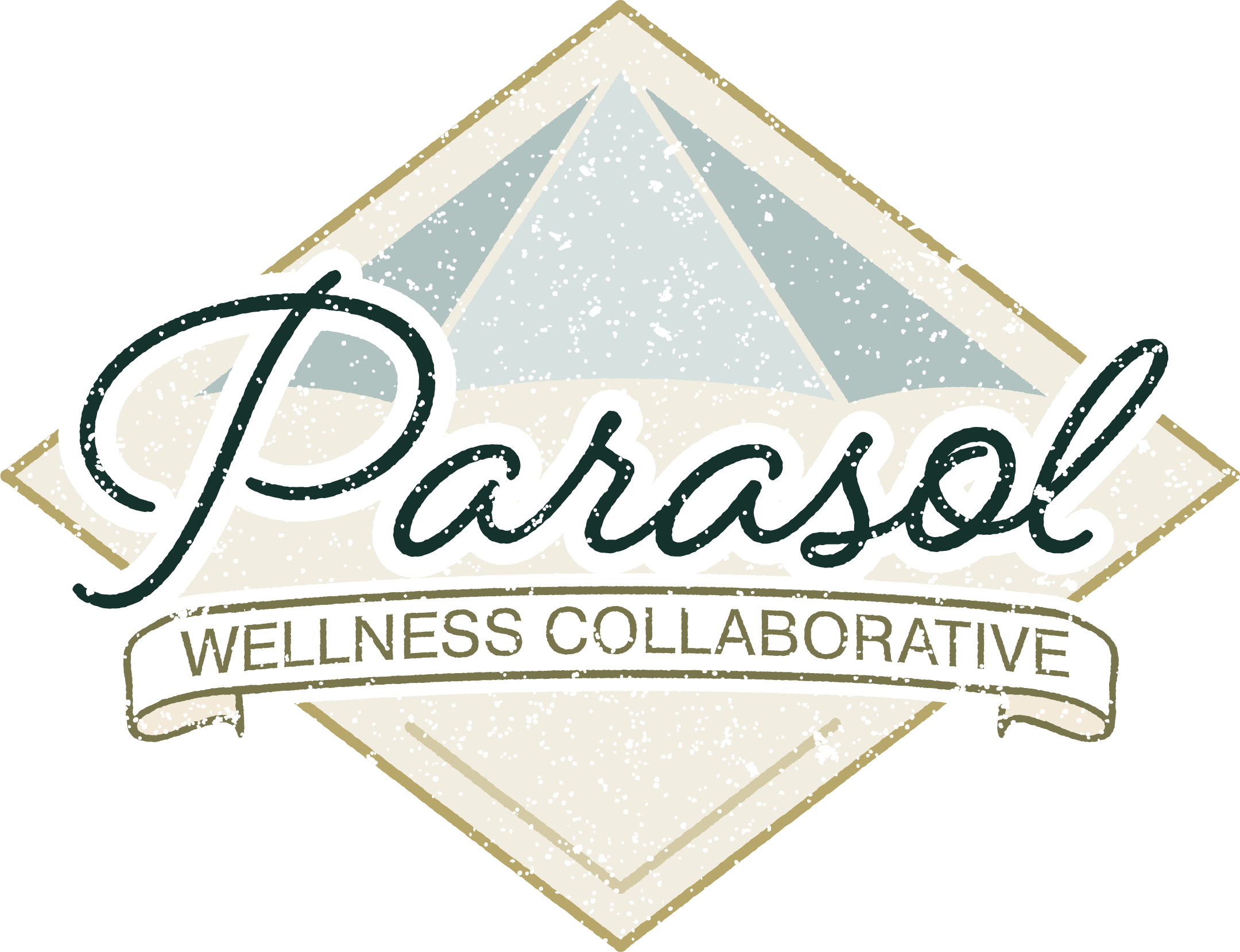COVID 19- What Now? Fostering Healthy Parasympathetic Function
What Now?

By Leah D Corder, MA LMFT
We recently wrote about the trauma response to COVID 19 and why people seem to be more exhausted than usual, with a lower capacity for dealing with the day to day. Many found that post to be helpful and we wanted to loop back to discuss- what now? So we know that the collective stress is wreaking havoc on people’s nervous systems, keeping us in a more constant state of fight or flight and it’s also important to address how to best nurture healthy parasympathetic response (the body’s ability to calm and regulate).
As a refresher, your sympathetic nervous system is responsible for the anxiety response that many of us are experiencing and the subsequent exhaustion. The parasympathetic nervous system is responsible for chilling us out and bringing our body back to a neutral homeostasis. Both are important systems that are out of whack in many of us when there’s so much to be anxious about for such a relentlessly long period of time. It’s also worth noting that spending too much time hanging out with your sympathetic nervous system in a state of anxiety weakens the immune system and our ability to fight off COVID 19- so even if you’re not exceptionally worried about the feelings of anxiety, your immune system needs you to attend to the stress so it can go to war against COVID 19, should you become exposed.
Jenn Geryol talked in her earlier article Why Am I So Tired? About practicing grace- allowing yourself to feel how you feel without judgement. This is imperative. We know that when we are able to allow our feelings, we’re more quickly able to process along to find solutions. When we’re busy judging the emotions, we can’t also be focusing on how to resolve them. Therefore, it makes sense to have a first step of non-judgmentally noticing what’s going on in our bodies. Often times reminding ourselves to stop and breathe will provide this moment of clarity so we can move on to the next step- nurturance.
Much of what we know about regulating the parasympathetic nervous system comes down to your run of the mill, basic self-care strategies. Breathing exercises can be incredibly effective as well as frequent body scans where you practice releasing tension in your body wherever you find it. I find that square breathing is easiest for me to access no matter how dysregulated I feel- breathe in for a count of 5, hold for a count of 5, breathe out for 5 and hold for 5 before going around the square again and as many times as needed before some clarity comes. Additionally, taking a walk in nature, finding an excuse to giggle (or better yet- a full on belly laugh!), petting a dog, praying, practicing yoga, etc- all great ways to calm the body enough to help your natural balance to return. And, there are some strategies that can be employed right now that are maybe a little less common as well.
Diet:
Your diet plays a big part in your body’s ability to function optimally and the parasympathetic nervous system craves protein, B vitamins, and omega 3 fatty acids. Try incorporating protein into your diet more frequently throughout the day for sustained energy. Eat fatty fish, walnuts and avocado for fatty acids (and/or take a fish oil supplement). Increase your B vitamin consumption with whole grains and dark, leafy greens- but remember these are water soluble vitamins that get flushed out within hours if not used by the body, so eat them frequently throughout the day and/or consider supplementing. Additionally every organ and process in our body needs proper hydration to function optimally and the stress response process is no exception- drink plenty of water throughout the day to reclaim that negative cycle of dehydration causing stress on the body and stress on the body using up more of the water you’re putting in. Avoid caffeine and alcohol as both can upset the already delicate balancing act. Additionally, know that increased sympathetic nervous system activity (aka stress) makes digestion in general more difficult for your body- chew your food completely to give your body a helping hand.
Exercise:
Exercise gives your body an excellent opportunity to train in transitioning from sympathetic nervous system response back to parasympathetic, strengthening the process. Moderate aerobic exercise can strengthen the response of the parasympathetic nervous system and decrease your resting heart rate- walking or doing yoga just 30 min a day for at least 5 days/week is recommended. High intensity exercise also gives your body a chance to practice and strengthen the calming response.
Sensory:
Pay attention to sensory input. Literally everything you sense is processed through this nervous system. And, right now we know that our nervous systems could use a little bit of help regulating- so now is a good time to try out some aroma therapy, tidy up the house, dim the lights, or tuck in with a soft blanket while we work from home. Pay attention to what you’re sensing and do what you can to lovingly soften the blow to your nervous system. We’re able to control so much more of our environments than we recognize and taking control of what we can when the world feels out of control can be so soothing.
Gratitude:
Gratitude- if you’re reading this right now you have much to be grateful for. You’re living, breathing. You’re connected to information and resources via the internet. You most likely have a roof over your head and food in your belly. You’re learning, right now, about how to make yourself more comfortable. These are gifts. Allowing yourself to feel grateful expresses your parasympathetic nervous system response and will reduce anxiety, especially if this practice is cultivated as a habit over time. It’s real difficult for your sympathetic nervous system to justify freaking out in a fight or flight response when you’re feeding your brain with thoughts about how you’re safe right now.
Chanting:
Chanting or humming can help to activate your parasympathetic nervous system as well. The backbone of the whole system, the vagus nerve, runs down your ear and throat through your heart and into your internal organs. You can activate that vagus nerve by chanting or humming, bringing about a sense of peace and calm.
Tune in:
Trust your body. Your body knows what to do- so many of the processes that keep us alive and functioning throughout the day are happening without our awareness. As you’re reading this, your body is working to keep you healthy and alive. Spending some time reveling in the wonder of the intricate processes at work can be another great avenue for gratitude and can provide clarity around where you feel off in the body and what to do about it.
Once we’ve completed that crucial first step of nonjudgmentally noticing what’s going on inside of us, solutions are often just right around the corner. For example, I might notice that I’m having a disproportionate response to my kid’s fighting (aka- I’m yelling and freaking out over something inconsequential). If I breathe through it and get curious about my own response, I can admit that I am activated more than I’d like to be. I might notice that I’m carrying a ton of tension in my shoulders, neck and chest. There’s an obvious solution to that tension- yoga, some informal stretching, a walk, or even just progressive relaxation using that body scan I mentioned earlier. In taking that time to care for my muscles, I can reflect on factors that may have led to the disproportionate response to start with- I haven’t carved out much time and space for myself with my kids home all the time. There’s an obvious solution there, too, and my intuition would tell me to let the kids do their own thing for a bit so I can read a book or write a blog post. I might recognize that I feel sluggish in my gut and recall that I ate a ton of the kids’ Easter candy after they went to bed. Clear solution- lots of water and a salad for lunch today. Those solutions only become clear once I’ve removed the judgement and reflected on the sensations with curiosity. Once they come to me, though, what I’ve got is much more valuable than any self-care blog post- I’ve got direction right from the source and tailored to my unique needs.


Sara A Hopkins
Spot on!!! Thanks!